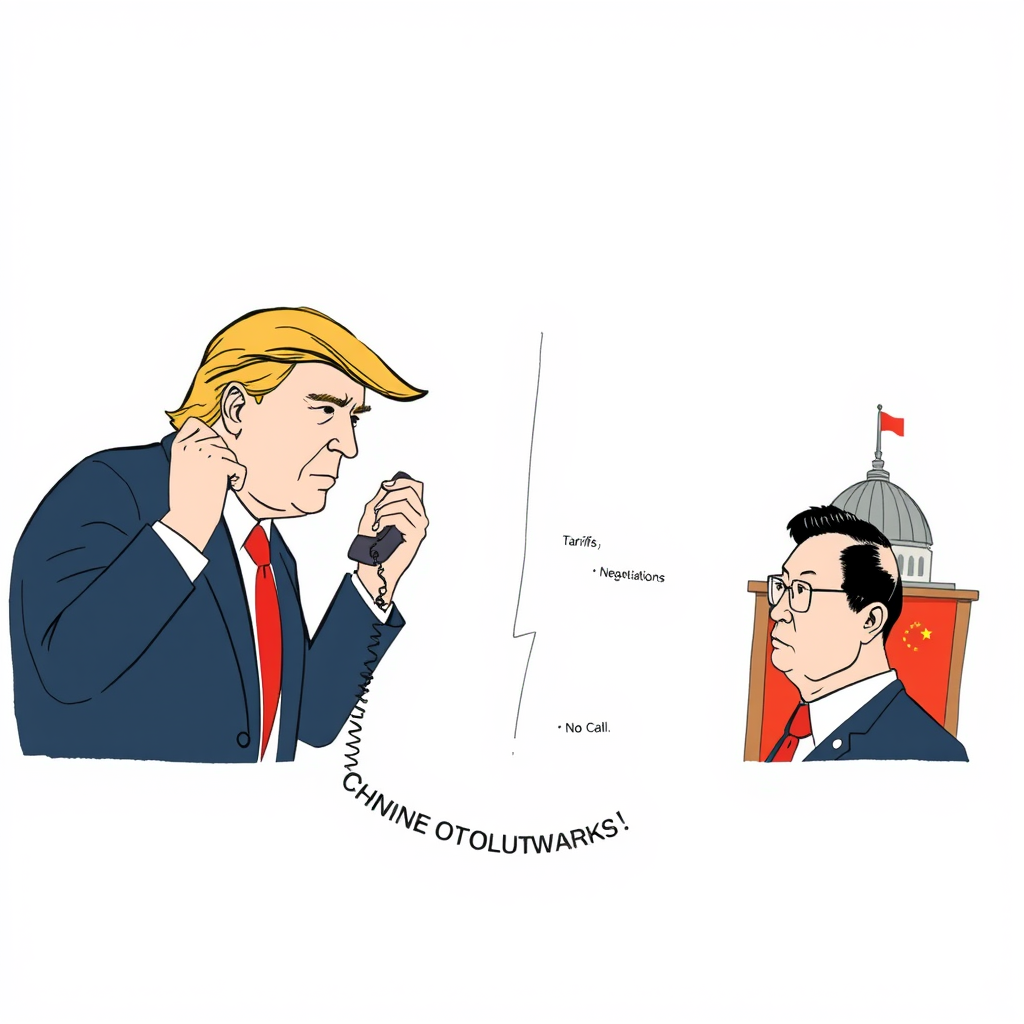Trump's China Call Claims Met With Doubt

The White House is facing scrutiny over conflicting reports regarding communication with China concerning potential tariff negotiations. President Donald Trump claimed he was “actively” negotiating with President Xi Jinping, even stating Xi had personally called him to discuss the issue. However, China has repeatedly denied these claims, and a key administration official appeared to evade direct questioning on the matter.
The discrepancy began last week when Trump told reporters about ongoing talks. China’s Foreign Ministry swiftly refuted this, with spokesperson Guo Jiakun telling Reuters, “As far as I know, the two heads of state have not called each other recently,” and emphasizing that no consultations or negotiations regarding tariffs are currently underway.
Treasury Secretary Scott Bessent further complicated the situation during a Monday interview on CNBC’s “Squawk Box.” When directly asked by co-host Joe Kernen about a potential phone call between the presidents and the status of negotiations, Bessent offered a non-answer, stating that running the “White House switchboard isn’t one of” his responsibilities. He then pivoted to blaming China for the trade imbalance, asserting that de-escalation is “up to China” given their significantly larger export volume to the U.S. and characterizing current tariffs as unsustainable.
This exchange follows a recent rebuke from the Chinese Foreign Ministry, which, according to Politico, urged the U.S. to abandon “threatening and blackmailing” tactics and engage in dialogue based on “equality, respect, and mutual benefit.” The ministry argued that pursuing a deal while simultaneously applying “extreme pressure” is counterproductive.
The conflicting narratives and evasive responses raise questions about transparency and the true state of U.S.-China trade relations. While the administration frames the issue as China needing to address the trade imbalance, the lack of clear communication and the apparent contradiction between the President’s statements and those of his officials create an atmosphere of uncertainty. It’s a precarious situation, and the continued back-and-forth risks further escalating tensions rather than fostering a productive path toward resolution. The reliance on blaming the other side, rather than clarifying communication, appears to be the current strategy, which is unlikely to yield positive results.